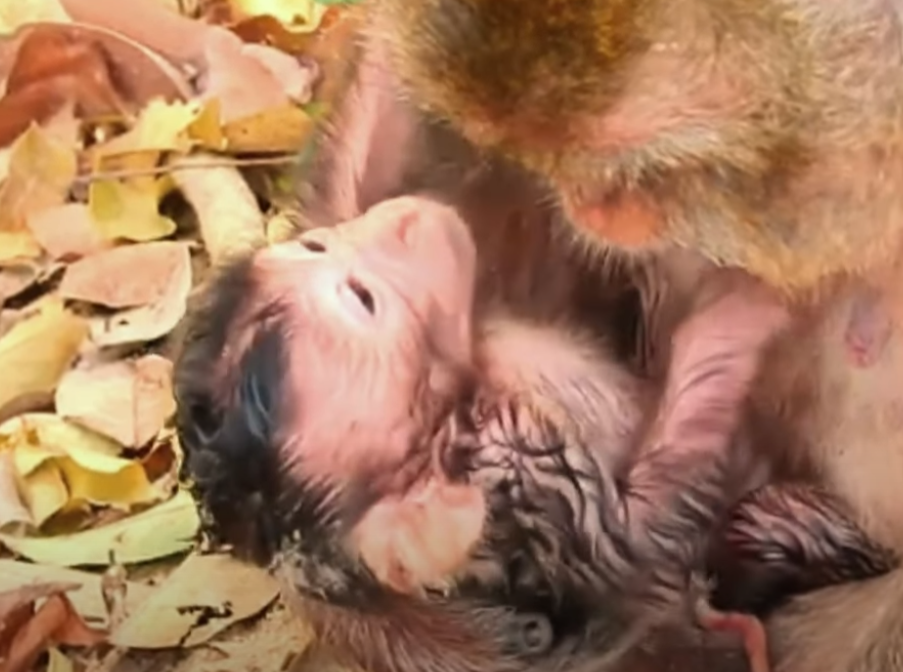

In the deep greens of Angkor Wat’s ancient forest, life pulses gently with the rhythms of nature. But not all mornings begin with serenity. Today, the soft hush of the jungle was pierced by the faintest sound — a tiny, trembling cry.
Cradled in the arms of a first-time mother monkey, a newborn, so fragile and new to the world, struggled to find what all babies need — the comfort and nourishment of milk. But something was wrong.
The young mother looked barely more than a juvenile herself. Her fur was still sleek, and her movements carried that clumsy, anxious energy of one who is trying but doesn’t yet know how. She glanced around nervously, unsure of what to do, as the baby desperately nudged and pawed at her belly, seeking milk that wouldn’t come.
It was painful to watch. The newborn’s mouth opened wide, rooting instinctively, but the young mother had no milk to offer — not yet. She shifted her body, trying to make it easier, but the baby’s cries only grew softer… and more hopeless.
The forest around them felt still. Other mothers sat nearby, their own babies nestled peacefully against their chests, eyes closed, bellies full. One older female came close, watching with a gentle gaze. She reached out, not to harm, but as if to offer silent support to the young mother. But she, unsure of what was happening, pulled back.
Witnessing this felt like watching nature’s quiet heartbreak unfold in real time. This mother wanted to care for her child. She held it with shaking arms, licked its tiny head, and curled around it with protective instinct. But love alone doesn’t fill an empty belly.
Some moments lasted forever. The baby monkey, whose eyes hadn’t even fully adjusted to light yet, pressed against her mother’s chest one more time. She clung tightly with fragile limbs, trying again… and again… until exhaustion took over.
But just as it felt like all hope was fading, something shifted. The older female who had been watching stepped closer. She chattered softly, a vocalization not of warning but of empathy. Then — in a moment so rare and beautiful — she offered her own body for the baby to try and nurse.
It was brief. The mother didn’t understand what was happening and pulled her baby close once more. But the gesture had been made. The forest had seen. A message had been shared: you are not alone.
In the hours that followed, the young mother kept trying. She shifted positions more confidently. She began to groom the baby more attentively. The baby still cried, but there was a flicker of peace now. Perhaps milk would come. Perhaps her body just needed time. And perhaps, in this ancient jungle, time and community could be enough.
This was not a tale of perfect motherhood or a fairytale ending. This was a raw, real glimpse into the hardships of survival, of new life, and of learning in a world that gives no instructions — only instincts, and the quiet possibility of support.
For those of us watching, it was a reminder of how deeply motherhood runs — not just in humans but in every creature that gives life. And how sometimes, love is not a loud act, but a quiet refusal to give up.